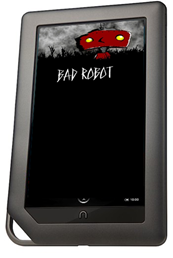Microsoft sues Barnes and Noble over Android Nook Color
2 min. read
Published on
Read our disclosure page to find out how can you help MSPoweruser sustain the editorial team Read more


It seems Barnes and Noble has not been playing ball and after a year of negotiation Microsoft files suit in the U.S. District Court in Seattle and the International Trade Commission, naming Barnes and Noble, Inventec and Foxconn, the ODMs.
According to Microsoft their patents “cover a range of functionality embodied in Android devices that are essential to the user experience, including: natural ways of interacting with devices by tabbing through various screens to find the information they need; surfing the Web more quickly, and interacting with documents and e-books.â€
A statement from Horacio Gutierrez, Microsoft corporate vice president and deputy general counsel of Intellectual Property and Licensing reads as follows:
“The Android platform infringes a number of Microsoft’s patents, and companies manufacturing and shipping Android devices must respect our intellectual property rights. To facilitate that we have established an industry-wide patent licensing program for Android device manufacturers. Other vendors, including HTC, a market leader in Android smartphones, have taken a license under this program, and we have tried for over a year to reach licensing agreements with Barnes & Noble, Foxconn and Inventec. Their refusals to take licenses leave us no choice but to bring legal action to defend our innovations and fulfill our responsibility to our customers, partners, and shareholders to safeguard the billions of dollars we invest each year to bring great software products and services to market.â€
While we rather see Microsoft release a Courier that harass a competing company with patents, it is inarguable to Google, the company behind Android, has scant regard for copyright and intellectual property (see YouTube, book scanning, and stealing code from 7000 Linux header files) and prefers to ask for forgiveness after rather than permission before, making it quite likely Android is filled with patent traps for companies eager to profit from the free OS.
Via Geekwire.com








User forum
0 messages